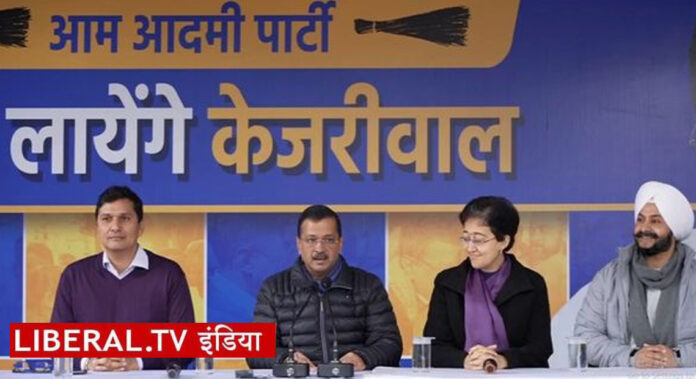In a significant political development just days before the Delhi Assembly elections, seven Aam Aadmi Party (AAP) MLAs resigned from the party’s primary membership on Friday, delivering a blow to Chief Minister Arvind Kejriwal. Six of the seven lawmakers had been dropped by the party and denied tickets to contest the upcoming elections, while one, Mehrauli MLA Naresh Yadav, had initially been given a ticket but later withdrew after being embroiled in a controversy related to the Punjab Quran sacrilege case.
Among the resigning MLAs, Palam MLA Bhawna Gaur and Kasturba Nagar legislator Madan Lal were particularly vocal about their dissatisfaction, both citing a loss of faith in Kejriwal and the party. In their resignation letters, they expressed their disillusionment, stating, “I have lost faith in you and the party,” signaling deeper unrest within the ranks of the AAP. The resignations, which also included Rohit Mehraulia (Trilokpuri), Rajesh Rishi (Janakpuri), Naresh Yadav (Mehrauli), Pawan Sharma (Adarsh Nagar), and BS Joon (Bijwasan), come as the party scrambles to retain its grip on power in Delhi.
Of these, six had been replaced by new faces as AAP candidates for the February 2025 elections. Bhawna Gaur, for example, was replaced by Joginder Solanki for the Palam seat, while Rajesh Rishi’s seat in Janakpuri went to Pravin Kumar, and Madan Lal’s Kasturba Nagar seat was assigned to Ramesh Pehlwan. In an unexpected turn of events, Naresh Yadav, who had been given a ticket initially, later saw his position revoked after the allegations against him were substantiated. The party replaced him with Mahender Chaudhary, a move that evidently triggered his resignation.
The timing of these resignations could not have been worse for AAP, as it gears up for the crucial elections on February 5, with votes being counted on February 8. The party is hoping for a third consecutive term in Delhi, but it faces fierce competition from the BJP, which has been out of power in the capital for over 27 years. The Congress, though currently less influential, remains a key player in the race.
The mass resignations highlight a growing rift within the AAP, as several MLAs felt sidelined or disillusioned by the party’s decisions, especially in the run-up to such a high-stakes election. The resignation of key members also raises questions about the party’s internal dynamics and its ability to maintain unity ahead of the vote.
For Kejriwal, this is undoubtedly a critical moment. As the face of AAP, his leadership will be closely scrutinized in the wake of these resignations. The question now is whether the party can overcome this internal upheaval and rally the support needed to retain control of Delhi, or if these defections will signal the beginning of a shift in the political landscape of the capital.



